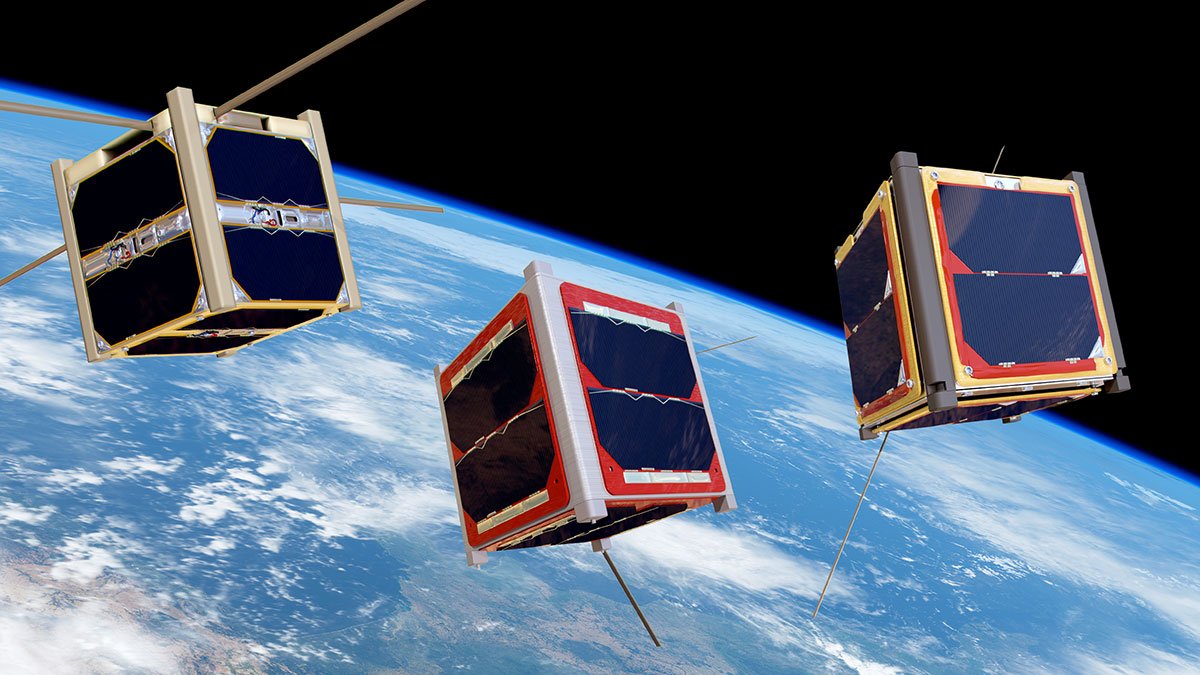
Image Credits: ESA
OVERVIEW
Context
The Asia-Pacific Space Cooperation Organization (APSCO) is proposing to organize a training course followed up by two days of brainstorming forum on “Science Missions using CubeSats” in 2019. The training course will be organized for three days by APSCO and then a two-days brainstorming forum jointly organized by ISSI-BJ and APSCO will follow. Both events share the same theme and topic of “Science Missions using CubeSats”.
CubeSats have enjoyed widespread acceptance in the space community since their inception, with a growing developer list. CubeSat can help reduce the costs of technical developments and scientific investigations. This lowered barrier to entry has greatly increased access to space, leading to an exponential growth in the popularity of CubeSats also in space development countries. Although barriers to entry are very low but the return on education, experience, and collaborative relationships gained can be invaluable. Small satellites have been launched with considerable success by many organizations in developed and developing countries. Over 800 CubeSats have been launched as of April 2018. Some CubeSats became the first national satellites of their countries. Producing their own satellites was considered a national achievement and a source of national pride by each country. Coupled with realistic and focused goals such satellites make it possible for a country with even a small research budget and little or no experience with space technology to participate in their development, launching and operation. Small satellites thus present an ideal opportunity for training students, engineers and scientists in different disciplines, including engineering, software development for on-board and ground computers and management of sophisticated technical programs.
Asia-Pacific Space Cooperation Organization (APSCO), as the multilateral inter-governmental organization, not only promotes the regional space cooperation, but also enhances the capacity building of its Member States in different disciplines. For this purpose, the training course on “Science Missions using CubeSats” is proposed by APSCO, in collaboration with ISSI-BJ, to promote international cooperation. The program will invite well-known experts to share their profound experiences and valuable thoughts and insights at this training, to train students and faculties from Member States for using small satellite and for the joint ISSI-BJ forum for discussing key sciences that can be developed for CubeSats science missions.
Objectives
During the two-day Forum, we intend to focus our discussion on three main topics:
- Identify suitable key sciences that can be developed for CubeSats science missions. What are the CubeSat feasibilities for space development countries?
- Developing CubeSats space education system to establish cooperative programs not only for the purpose of training, but also with a view to preparing collaboration for scientific or application missions.
- Reports from the training section.
Through this kind of training and joint ISSI-BJ 2-day forum, the participants would contribute significantly for developing space education system to establish cooperative programmes not only for the purpose of training, but also with a view to preparing collaboration for scientific or application missions. It also makes it possible for APSCO Member States to pool their efforts in building their individual space capabilities. The build-to-operations cycle for CubeSats is less than three years, which allows a university student to be involved in development from inception to mission, thus this program provides vital training for the next generation of space experts.
Date
June 3-8, 2019 (June 3-5: Training Course; June 6-7: Forum; June 8: Excursion)
Location
Geo-informatics and Space Technology Development Agency (GISTDA), Si Racha, Chon Buri Province, Thailand (MORE)
AGENDA
Forum Program (PDF)>>
last update: May 30, 2019
Training Course and Forum Handbook (PDF)>>
last update: May 30, 2019
Download Presentations>>
CONVENERS
| Mohammad Ebrahimi SEYEDABADI |
Asia-Pacific Space Cooperation Organization (APSCO), China |
| Maurizio FALANGA |
International Space Science Institute - Beijing (ISSI-BJ), China |
The participants will stay in one of the two designated places. Each participant will be notified about the details of their accommodation in advance by e-mail. (MORE)
The venue is approximately 100 kilometers from Suvannaphumi Airport and close to Pattaya, one of the world’s most beautiful beaches. The travel time from Suvarnnabhumi Airport is about 1.5 h. (MORE)